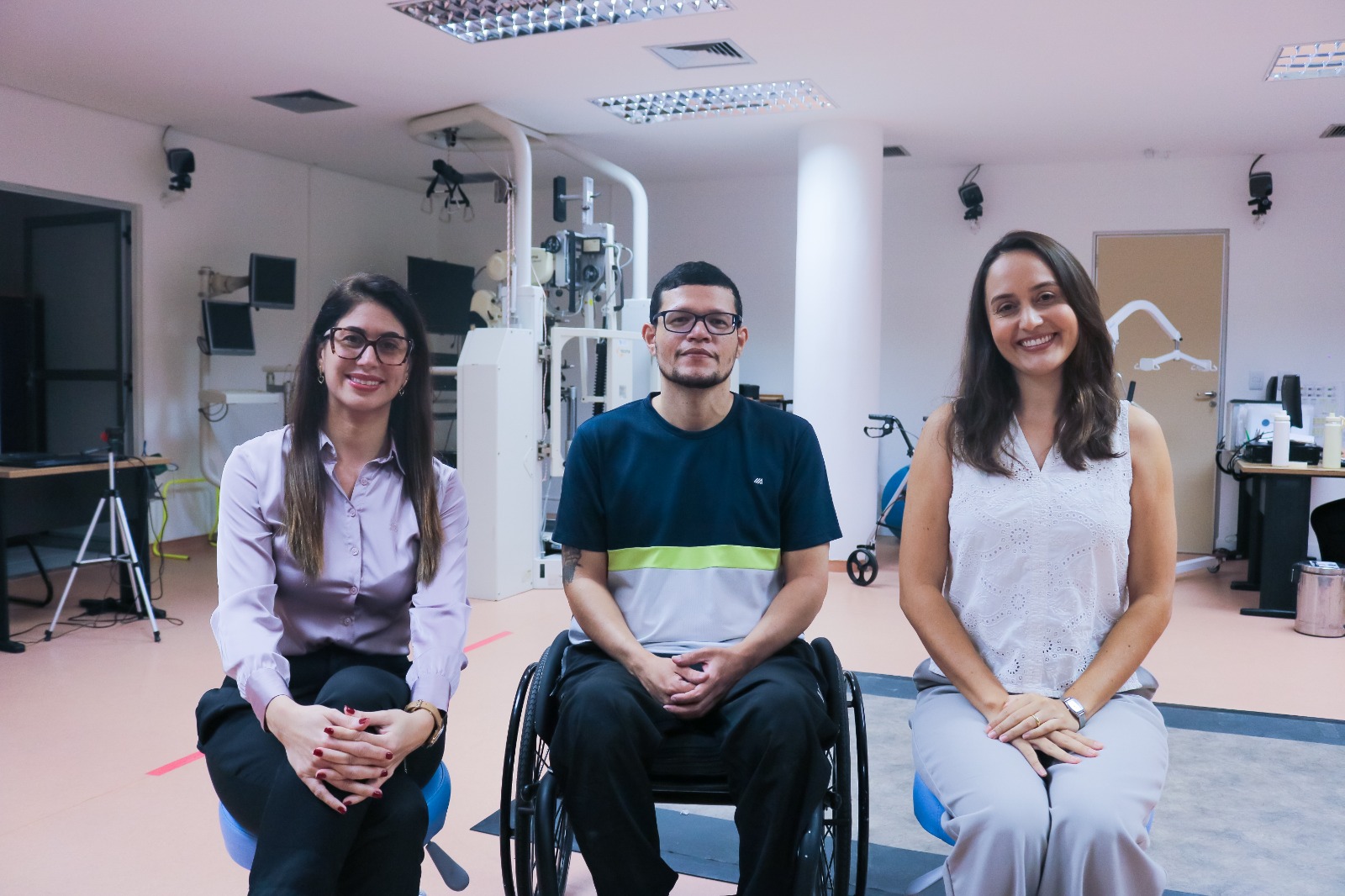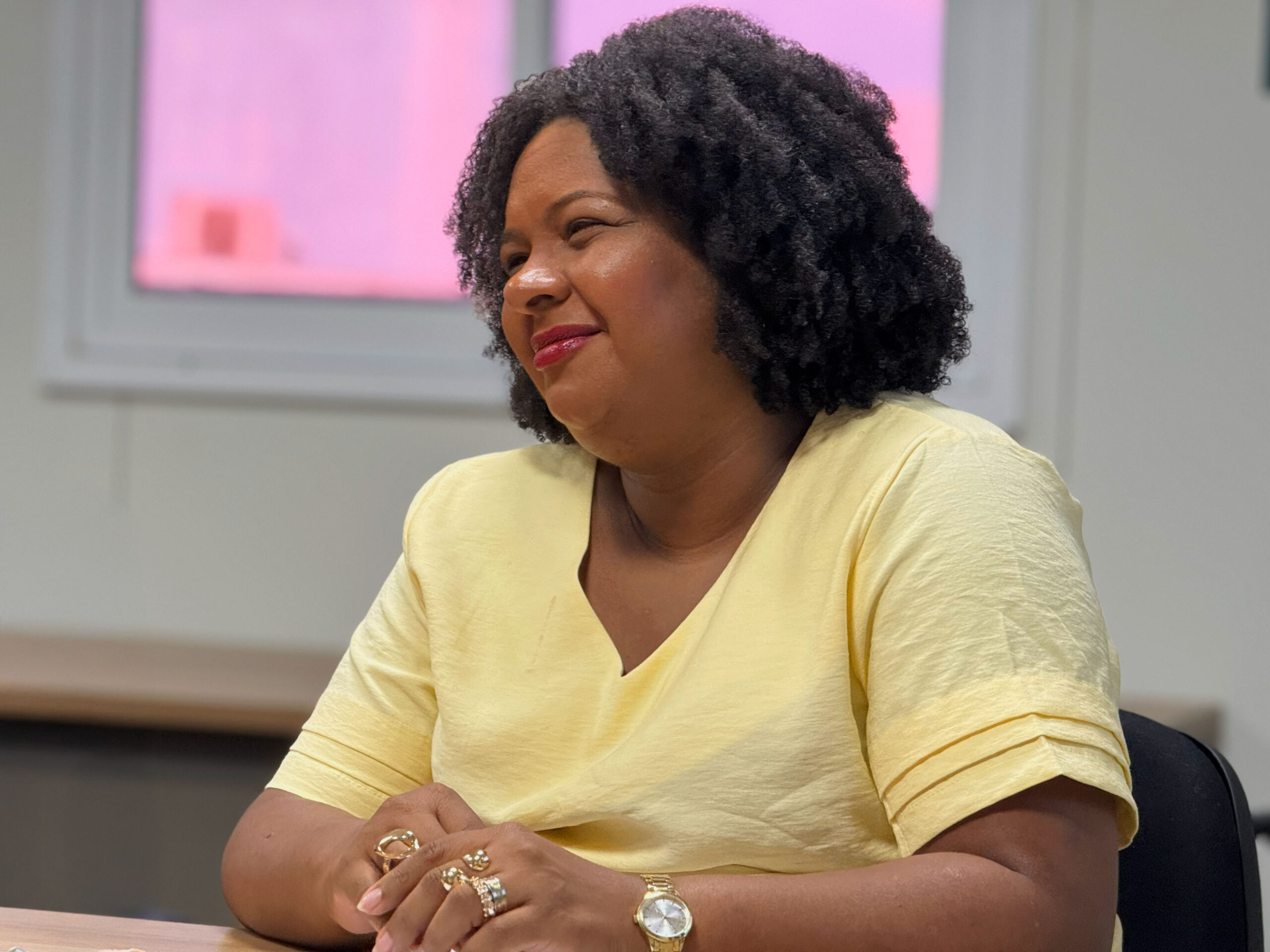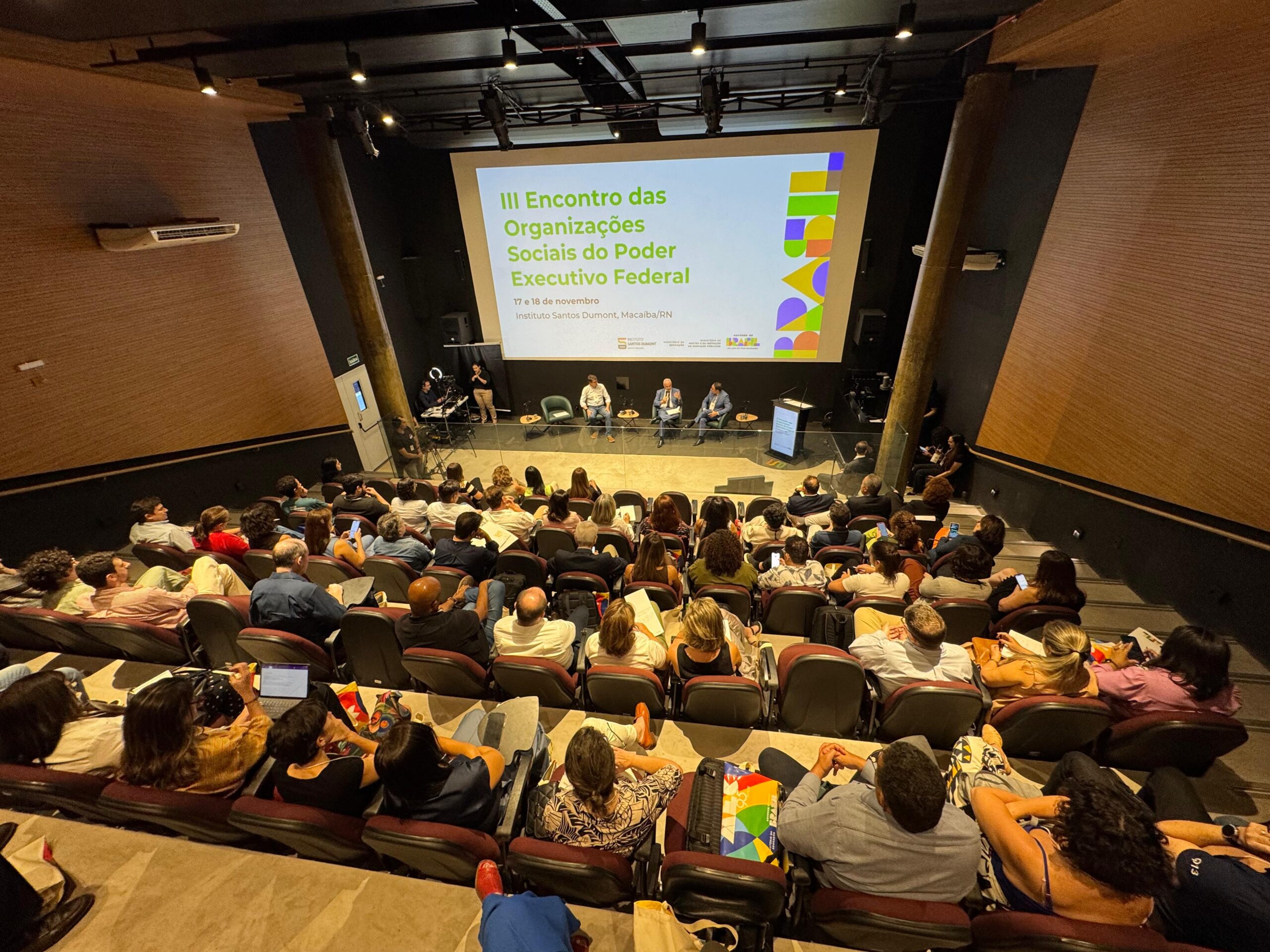The successful work of institutions for the habilitation and rehabilitation of people with visual impairments in Brazil is inspiring the Santos Dumont Institute (ISD) in the process of implementing ophthalmological care through the Specialized Rehabilitation Center (CER IV ISD), scheduled to come into operation in the first months of 2022. Throughout this week, the general director of ISD, Reginaldo Freitas Jr., accompanied by Lilian Lira Lisboa, manager of the Health Education and Research Center Anita Garibaldi (Anita) and the coordinator of the Specialized Center for Rehabilitation (CER IV ISD), Hougelle Simplício, visited the Dorina Nowill Foundation for the Blind, the Association of the Visually Impaired and Friends (Adeva) and the Colégio Vicentino de Cegos Padre Chico, in São Paulo (SP). The objective of the visits was to learn about the work methodology implemented in the health care of people with visual impairments that made them references. This Friday (08/10), the Escola de Educação Fundamental Instituto dos Cegos, in Fortaleza, will also be visited.
The first institution to be visited in São Paulo, at the beginning of this week, was the Dorina Nowill Foundation for the Blind, one of the oldest in the country. “We have 75 years of experience in promoting the autonomy and inclusion of blind people in society. A very powerful and beautiful work to behold. There is a lot of inspiration for ISD here and we are aware of how much we have to learn from the excellence of the Dorina Nowill Foundation. We articulated promising partnerships for the development of our preceptors, for the inclusion of ISD in the Inclusive Reading Network and for access to Dorinateca, in addition to beginning negotiations for knowledge exchange strategies and assistive technologies between both institutions. The visit, the welcome and the receptiveness enchanted us and we are very grateful for that”, declared the general director of ISD, Reginaldo Freitas Jr.
The Dorina Foundation is named after its creator, Dorina de Gouvêa Nowill. She was born in São Paulo, on May 28, 1919 and ended up becoming blind at the age of 17, after an undiagnosed illness. She was the first blind student to attend a regular course at Escola Normal Caetano de Campos, and managed to integrate another blind girl into a regular course at the same school. Later, Dorina would collaborate in the drafting of the school integration law, regulated in 1956. Realizing the lack, in Brazil, of books in Braille – a writing and reading system for the blind –, she created the then Foundation for the Book of the Blind in Brazil, which began its activities on March 11, 1946. Dorina specialized in blind education at the Teacher's College of Columbia University, in New York, United States. In addition to Reginaldo Freitas Jr., the coordinator of CER IV ISD, Hougelle Simplício, and Anita's manager, physiotherapist Lilian Lira Lisboa also visited the Foundation. The ISD team was welcomed by Alexandre Munck, superintendent of the Foundation, Kely Magalhães, manager of Inclusion Support Services and Sílvia Sertorio, responsible for the Dorina Nowill Memory Center.
Still in São Paulo, another institution that opened its doors to representatives of the Santos Dumont Institute was the Association of Visually Impaired People and Friends (Adeva), located in Vila Mariana. The Association aims to include people with visual impairments in society through work. Adeva promotes this integration through “integrated global education and training, professional retraining and insertion into the job market, preparing them for the full exercise of citizenship”. Adeva was founded in August 1978 by a group of friends. Some are visually impaired, others are not.
“Recognizing and transforming our ableist conception is one of the greatest needs for the effective social inclusion of people with disabilities. The visit to Adeva was very rich in this sense. At many times and in many activities, Hougelle and I were the only sighted people, in a place where multiple activities were taking place. Increasingly, we understand that it is the many barriers that society imposes that determine the dimensions for which someone can be considered disabled. Difference should never exclude. Our CER IV aims to be a promoter of inclusion and, to achieve this, it will also be necessary to develop actions aimed at autonomy, work and socialization, as Adeva already does. They have a lot to teach us”, highlighted Reginaldo Freitas Júnior. Adeva's facilities and the work carried out at the unit were detailed by coordinator Márcio Spoladore.
Concluding his visits to the capital of São Paulo this Thursday (07/08), Reginaldo Freitas Jr. visited Colégio Vicentino de Cegos Padre Chico, in the Ipiranga neighborhood. It is a philanthropic, confessional, inclusive school with its own resources, which ranges from Early Childhood Education to Elementary School II. It serves children and adolescents who are blind, have low vision, have no disabilities or have other learning impairments, with 100% being free. Since its foundation, it has been run by Sisters of the Company of the Daughters of Charity of Saint Vincent de Paul. The Instituto de Cegos Padre Chico was born on October 7, 1928, following an appeal by Dr. José Pereira Gomes, an ophthalmologist, at a meeting celebrating the Ophthalmo-Neurological Week of the Society of Medicine and Surgery in São Paulo so that if he built a school for the blind.
“The visit to the Instituto de Cegos Padre Chico coincided with the institution’s 93rd anniversary. A generous, caring and meaningful welcome. There is a lot of accumulated experience and expertise built through practice, through daily practice, through tireless coping with a reality that tends, naturally, to limit the potential of blind people. It was, without the slightest doubt, a very inspiring learning experience for everything we are dreaming of for ISD, in a place where there is hope. Everything you see at ISD was once someone's dream. We will achieve this more”, guaranteed Reginaldo Freitas Jr. The visit was guided by Ana Maria Pires, director, and Ana Maria Diniz Rosalini, pedagogical coordinator of Colégio Vicentino de Cegos Padre Chico.
This Friday (08/10) the Instituto dos Cegos School of Fundamental Education, in Fortaleza (CE), will be visited.
CER IV
The Ministry of Health published, in the Official Gazette of the Union on August 6, 2021, Ordinance No. 1,842, signed by Minister Marcelo Queiroga, which formalizes the change of category of the Anita Garibaldi Specialized Rehabilitation Center (CER ISD) located in the area rural Macaíba, from III to IV. From now on, in addition to rehabilitation services for hearing, intellectual and physical disabilities, CER IV operated by the Santos Dumont Institute (ISD) will now serve users with visual impairments.
The first CER IV in Greater Natal, and the second in Rio Grande do Norte, will serve users from the 7th Health Region, which includes the municipalities of Macaíba, Natal, Parnamirim, Extremoz and São Gonçalo do Amarante. This region has 1,371,945 inhabitants, which corresponds to almost 39% of the population of Rio Grande do Norte. To finance the procedures, the Ministry of Health will make an annual contribution of R$ 1,740,000.00.
Text: Ricardo Araújo / Ascom – ISD
Images: Assigned
Communication Office
comunicacao@isd.org.br
(84) 99416-1880
Santos Dumont Institute (ISD)
It is a Social Organization linked to the Ministry of Education (MEC) and includes the Edmond and Lily Safra International Institute of Neurosciences and the Anita Garibaldi Health Education and Research Center, both in Macaíba. ISD's mission is to promote education for life, forming citizens through integrated teaching, research and extension actions, in addition to contributing to a fairer and more humane transformation of Brazilian social reality.













